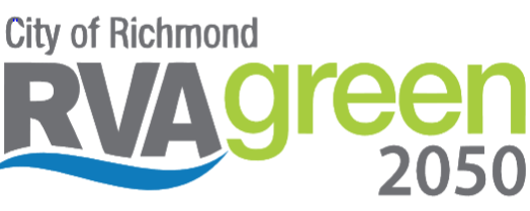Community Wealth
What we heard: Richmond residents want improved access to jobs, including transportation access. Residents indicated the need for wrap-around services that provide improved education, job training, job retention, and living wages. The City and community should work together to increase the wealth of Richmond residents. This includes enhancing access to well-paying and sustainable jobs, quality education, and strategies for saving money and building wealth.
What does this look like in Richmond? A 2016 Brookings Institution study found that the average U.S. net worth of a typical white family ($171,000) is nearly ten times greater than that of a Black family ($17,150). This wealth gap reflects historic and current racism in systems that affect access to property, jobs, and other financial resources. Communities on the frontlines of climate change will use a greater proportion of their resources to deal with impacts to their health, safety, and shelter, among other basic necessities.
A 2017 Greater Washington Partnership report showed that only 2% of jobs in the Richmond region are accessible by transit within a 40-minute commute. Nearly 90% of jobs are accessible by car within a 40-minute commute, but many Richmond households do not have access to a vehicle, especially those in neighborhoods with higher proportions of Black and African American and Hispanic and Latino residents.
At the same time, we are seeing an increase in greenhouse gas emissions caused by transportation in Richmond over the last few years. As jobs move further away from where people live, driving and therefore transportation pollution will increase.
Households without Access to a Vehicle
Source: RVAgreen 2050 Climate Equity Index, 2016 American Community Survey
Unemployment
Source: RVAgreen 2050 Climate Equity Index, 2016 American Community Survey
Actions we’re taking:
Conducting technical modeling to demonstrate how we can reach net zero greenhouse gas emissions by 2050 with strategies that also produce sustainable and well-paying jobs.
Partnering with the Office of Community Wealth Building to explore how to increase green jobs and related training programs in Richmond.
 RVAgreen 2050 will build on the foundation set by Richmond 300, the city’s master planning process that engaged thousands of Richmonders in identifying objectives such as these supporting community wealth:
RVAgreen 2050 will build on the foundation set by Richmond 300, the city’s master planning process that engaged thousands of Richmonders in identifying objectives such as these supporting community wealth:6.1: Increase the number of residents and jobs at Nodes and along enhanced transit corridors in a land development pattern that supports multi-modal transportation options
8.6: Increase the number of employers implementing Transportation Demand Management (TDM) strategies to shift individuals from single-occupancy-vehicles to biking, walking, and transit for daily tasks
11.1: Increase the areas of appropriately zoned land near various transportation modes and housing to retain, create, and attract employers
11.2: Implement equitable economic development strategies to expand inclusivity and opportunity
11.3: Increase the number and support the growth of small businesses, start-ups, and women-owned and minority-owned businesses
What you can do:
Find jobs in alternative energy, sustainability and the green economy
Certify your business, hotel, restaurant, or event with Virginia Green
Read about small business resilience to the effects of climate change
Receive a stormwater credit by installing control measures such as a rain garden, vegetated filtered strips or stormwater storage
Earn rewards with RideFinders when you walk, bike, carpool, or take transit
Check out the RVAgreen 2050 Virtual Resilience Hub resources under ‘Local Economy’




